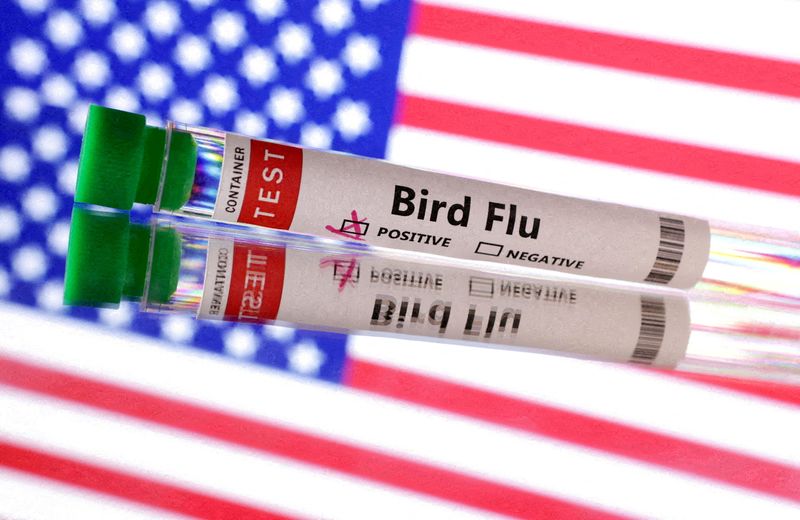By Tom Polansek
CHICAGO (Reuters) - U.S. poultry producers should ramp up testing and monitoring of turkeys for bird flu before they are slaughtered to ensure the virus stays out of the food supply, the U.S. Department of Agriculture said on Friday.
The agency is advising enhanced safety measures in Minnesota and South Dakota, where turkey flocks with more than 500 birds should be isolated, monitored and tested for bird flu within 72 hours before going to slaughter, USDA said.
Other states may be included later, the agency added.
"The new policy is encouraged, and has support from states and industry, but not required," USDA spokesperson Lyndsay Cole said in an email.
The changes come after a pet food company, Northwest Naturals, last month recalled cat food made with turkey because it tested positive for highly pathogenic avian influenza, or bird flu.
The Oregon Department of Agriculture said a cat contracted the disease and died after eating Northwest Naturals' Feline Turkey Recipe raw and frozen pet food contaminated with the virus.
Nearly 70 people in the U.S., most of them farmworkers, have contracted bird flu since April, as the virus has circulated among poultry flocks and dairy herds. Three people have tested positive without a clear source of exposure to the virus, according to the CDC. There is no confirmation that any people became infected by eating food that contained the virus.
Increased testing and surveillance of turkey flocks aim to remove a potential avenue for spreading the disease and to bolster confidence among consumers and trading partners, the agency said.

Minnesota, the nation's biggest turkey producer, and South Dakota have suffered bird flu outbreaks in flocks.
"These states were selected because of genetic linkages to the virus from infected cats and because of the high percentage of cases in turkeys in those states," USDA said.